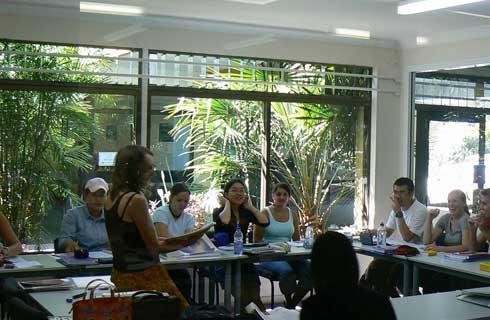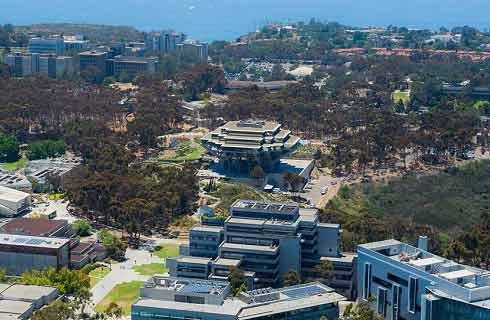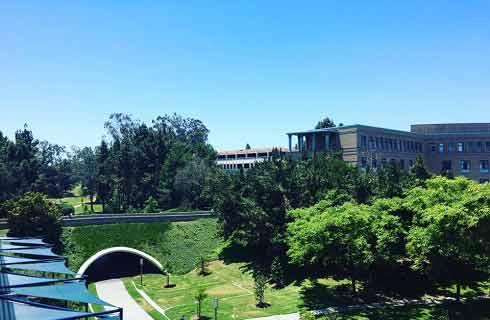- IDP China>
- 课程库>
- 工程与技术>
- 工程学及其相关技术>
- 电气电子工程技术>
- Bachelor of Engineering in Electrical Engineering - Telecommunications Engineering (Honours)
工学学士(电气工程)学士学位电信工程
Bachelor of Engineering in Electrical Engineering - Telecommunications Engineering (Honours)

学历文凭
Bachelor Degree with Honours

专业院系

开学时间

课程时长

课程学费

国际学生入学条件
IDP—雅思考试联合主办方

雅思考试总分
- 雅思总分:
- 托福网考总分:
- 托福笔试总分:
- 其他语言考试:
CRICOS代码: 083109M
申请截止日期: 请与IDP联系 以获取详细信息。
课程简介
The Bachelor of Engineering Honours (Electrical) will develop your ability to design and build the systems and machines that generate, transmit, measure, control and use electrical energy. It will position you to tackle the world's biggest challenges in health, education and the environment. You will learn from industry-leading professionals how electrical energy is produced and used in homes, the community and in industry. Throughout your studies you will develop a foundational knowledge of electrical circuits, electronics and computer systems, signals and communications, power systems, control, energy systems and management. During this four-year degree you will gain core skills in physics, mathematics, computer science and basic electrical engineering principles, before specialising in a variety of fields within the discipline, such as biomedical engineering, energy engineering and automatic control. In your third and fourth years, you can take electives to add breadth and depth to your studies. As part of your degree you will undertake the award-winning Professional Engagement Program enabling you to change your approach to learning through self-reflection and extra-curricular activities throughout your degree.Our Telecommunications Engineering specialisation explores the design, planning, commissioning and monitoring of complex telecommunications networks and broadcasting equipment. The discipline of telecommunications engineering is concerned with all aspects of theory and application for a broad range of systems such as telephone and data networks, radio and television broadcasting, satellite and deep space applications. It is also connected to digital communications, microwaves and antennas, optical communications, the design and manufacture of lasers and optical fibres, signal and information processing, and satellite mobile communications.As a graduate of our Telecommunications Engineering specialisation, you will be equipped to deal with a wide range of exciting modern technologies, including mobile and wireless communications, fixed and mobile internet, mobile social networking and data transmissions. Your career options might include designing and installing complex telecommunications networks, optical networks and other associated broadcasting equipment for large telecommunications carriers and their contractors, network and exchange equipment suppliers.
相关申请
 预科
预科 奖学金
奖学金 实习机会
实习机会 在校学习
在校学习 跨境学习
跨境学习 校园授课-线上开始
校园授课-线上开始 在线/远程学习
在线/远程学习
开学时间&学费
学费信息仅供参考,请与IDP联系以获取详细信息
| 开学时间 | 时长 | 学费 | 地点 |
|---|
学校排名

世界排名60
数据源:
泰晤士高等教育世界大学排名
关于悉尼大学

位于澳大利亚首都的悉尼大学是举世闻名的机构,一直名列世界前20名大学之列(2024年QS世界大学排名)。在2022年QS毕业生就业能力排名中,悉尼大学的毕业生也位居澳大利亚第一和世界第四。来自世界各地的学生进行本科和研究生水平的学习。学生可以在澳大利亚最广泛的课程和学科中选择。该大学提供超过400个学习领域供学生选择,大学5门学科位居世界前十名,另外还有28门学科位居世界前50名(2022年QS世界大学学科排名)。通过实习和工作经验以及通过大学海外项目进行国际交换(包含在学位内的可选项目),从而增加了学生的就业机会。学生将在支持和启发的环境中学习和发展,大学会提供给学生大量的服务,这包括学术和专业支持,残疾服务,保密咨询服务,健康服务还有财务援助办公室提供服务。学生还可以参加由悉尼大学学生会(USU)运营的250多个校园俱乐部和社团,从体育运动到文化团体应有尽有。校园内有许多可供学生使用的设施,其中包括带奥林匹克规格温水游泳池的健身室和攀岩中心。此外,还有美术馆、博物馆、咖啡馆、餐厅和酒吧供学生休闲。学生还可以使用南半球最大的学术图书馆。悉尼是世界上最优秀的城市,根据《经济学人》2021年安全城市指数显示,悉尼被评为第四大最安全的居住地,当地的学生体验得以丰富和提升。
本校相关课程

Graduate Certificate in Clinical Dentistry - Advanced Restorative
学历文凭
Graduate Certificate
开学日期
课程费用总额


Graduate Diploma in Clinical Dentistry - Advanced Restorative
学历文凭
Graduate Diploma
开学日期
课程费用总额


城市和区域规划研究生文凭
学历文凭
Graduate Diploma
开学日期
课程费用总额


教育硕士
学历文凭
Masters Degree (Coursework)
开学日期
课程费用总额


专业工程学硕士(电力)
学历文凭
Masters Degree (Coursework)
开学日期
课程费用总额


专业工程学硕士(电信)
学历文凭
Masters Degree (Coursework)
开学日期
课程费用总额

其他相关课程

工程科学硕士(网络系统和电信)
 斯威本科技大学
斯威本科技大学泰晤士高等教育世界大学排名:282
学历文凭
Masters Degree (Coursework)
开学日期
课程费用总额


工程学硕士(电气和电子工程)
 皇家墨尔本理工大学
皇家墨尔本理工大学学历文凭
Masters Degree (Coursework)
开学日期
课程费用总额


工程学研究生文凭(电子)
 阿德莱德大学
阿德莱德大学学历文凭
Graduate Diploma
开学日期
课程费用总额


专业工程学硕士(电力)
 悉尼大学
悉尼大学泰晤士高等教育世界大学排名:54
学历文凭
Masters Degree (Coursework)
开学日期
课程费用总额


专业工程学硕士(电信)
 悉尼大学
悉尼大学泰晤士高等教育世界大学排名:54
学历文凭
Masters Degree (Coursework)
开学日期
课程费用总额


专业工程学硕士(电气)
 悉尼大学
悉尼大学泰晤士高等教育世界大学排名:54
学历文凭
Masters Degree (Coursework)
开学日期
课程费用总额










